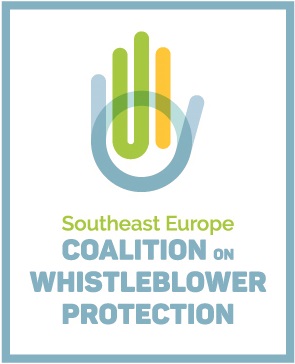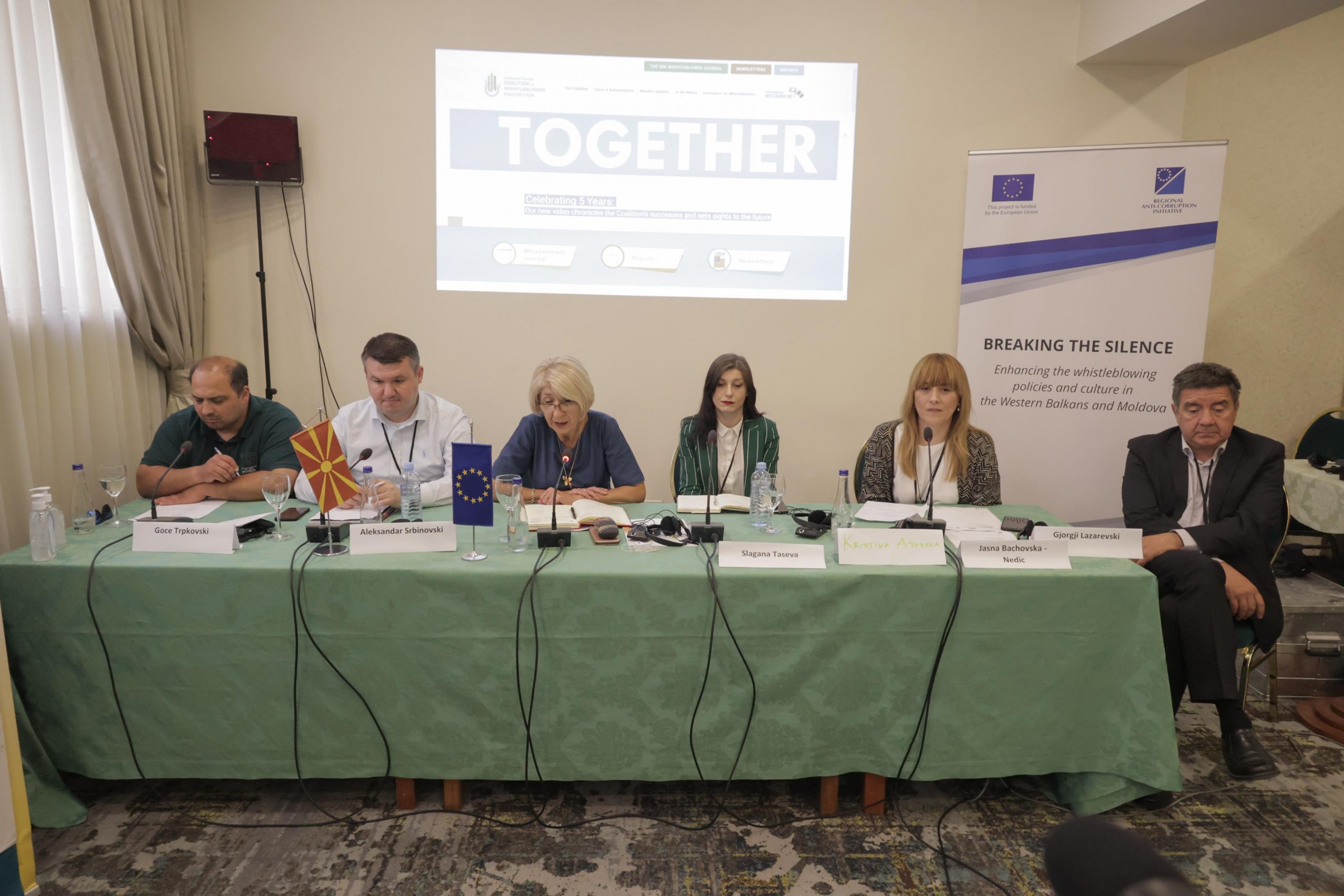Goran Lefkov
The last session of the first day of the conference was full of journalists. The session was led by the professor at the Faculty of Law in Skopje, i.e. the studies in journalism, Jasna Bachovska-Nedikj. In her introductory speech she mentioned that Macedonia had several good journalists who could cope with world standards, but that in general journalists were far from the required level. She mentioned that if we did not have better journalists, we would not have a good democracy.
Slagjana Taseva in her address emphasized that we had a serious problem with the fight against corruption, especially in the high levels of the government. Corruption is also present in the lower levels of government and it grows into systemic corruption and that is why it is important for whistleblowers to extract information about deviant phenomena in the institutions.
Kristina Atovska believes that journalists are the only institution where whistleblowers are accepted as real heroes, despite the public perception. She mentioned an interesting sentence that the Macedonian institutions needed 10 months to prepare a law, but 10 years to implement it properly.
At the same debate, Goce Trpkovski mentioned that the best stories came from whistleblowers. He presented a picture of his lecture to coaches from the Reuters News Agency, in which he vividly presented in concentric circles how far the journalist could go. From that picture it was seen that it is practically impossible to get a great research story without the help of a whistleblower or a source inside the organization itself.
Whistleblowers’ acts and whistleblowing are closely correlated with the courts. There is almost no act of whistleblowing that has not ended or will not end in court. From the very beginning of the reporting procedure, the person who reports knows that it is something illegal and that is why he reports the case. Gordana Duvnjak, an experienced editor who oversees the judiciary, believes that in the past, judges did not even recognize the work in which whistleblowers had been involved. Tinka Kiteska also mentioned that in her speech. Her court proceedings have been dragging on for 3 years, although whistleblowers should be given priority over their cases in court.
This was the last session of the conference on whistleblower protection in Skopje. This event was specific and unique because for the first time whistleblowers went public to talk about the problems in first-person. There were several past and present whistleblowers and a strong synergy was created between them. Isolation is one of the serious problems of whistleblowers and this was a way to overcome it. In the end, the message was sent to welcome the next conference and the next International Whistleblower Day with more cases and much greater whistleblower protection.





